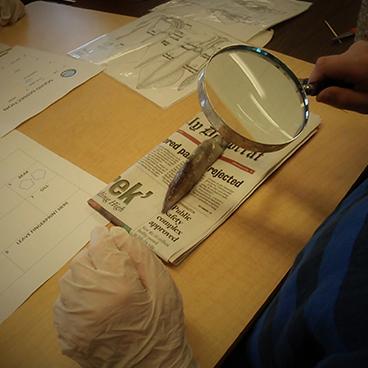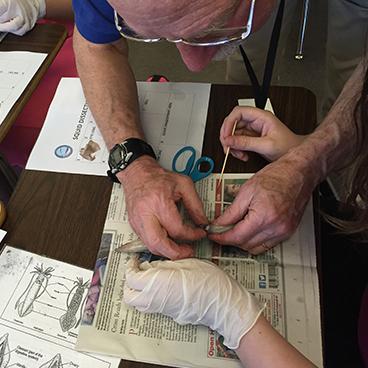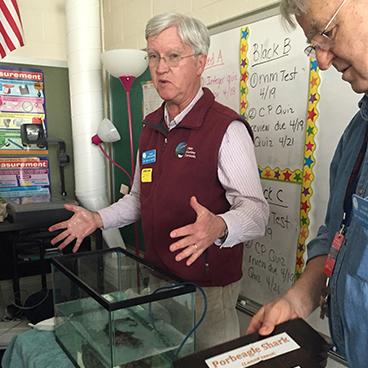Bring the sea to your school

The Day of the Coast program provides an opportunity for elementary through high school students to experience hands-on learning about the marine environment. UNH Marine Docents can provide a variety of our SeaTrek programs in one day! We’ll meet with your staff to design the day so that we can include your specific curriculum goals in our programs, typically 4-5 SeaTrek topics, each presented multiple times throughout the day. Each ‘Day of the Coast’ is a unique event tailored to your school.
Flexible Content
Our programs are available all day or for a few hours. Collaborating with you, we can completely customize the event schedule to involve multiple classroom spaces and programs.
Program Elements
Each session lasts about 45 to 55 minutes, depending on the school's schedule. Organizers can request any of the programs listed on our SeaTrek page. Please visit our page for full descriptions.
Schedule a Day of the Coast With Us!
Examples of what students will learn
Squid Dissection

Students will learn squid anatomy, gender identification, beak mandibles, skin coloration and meaning, along with dissection procedures.
Each student is able to dissect their own squid. To assist the dissection, they are given a labeled sheet where they can place each identified part and better examine them over the course of the activity.
Sharks

Students will learn about adaptations, typical diet, types of sharks typically found near the New Hampshire sea coast and their native habitat. Students will also learn how they can track wild sharks in the ocean.
Activities for this session include live handling of a Chain Catshark, an interactive Powerpoint Presentation, real shark mandibles, and shark skin for texture.
Rocky Shore

Students learn about the many different creatures that live along the New Hampshire coastline. We discuss the habitual life of snails, sea stars, sea urchins, crabs, barnacles, and periwinkles in the intertidal zone. Docents introduce the concepts of predator and prey, high and low tide, and animal adaptations for survival.
Hands-on activities include stations that focus on sea stars, snails, and crabs. Students have the opportunity to handle live creatures and interact with volunteers who have great knowledge about each topic.